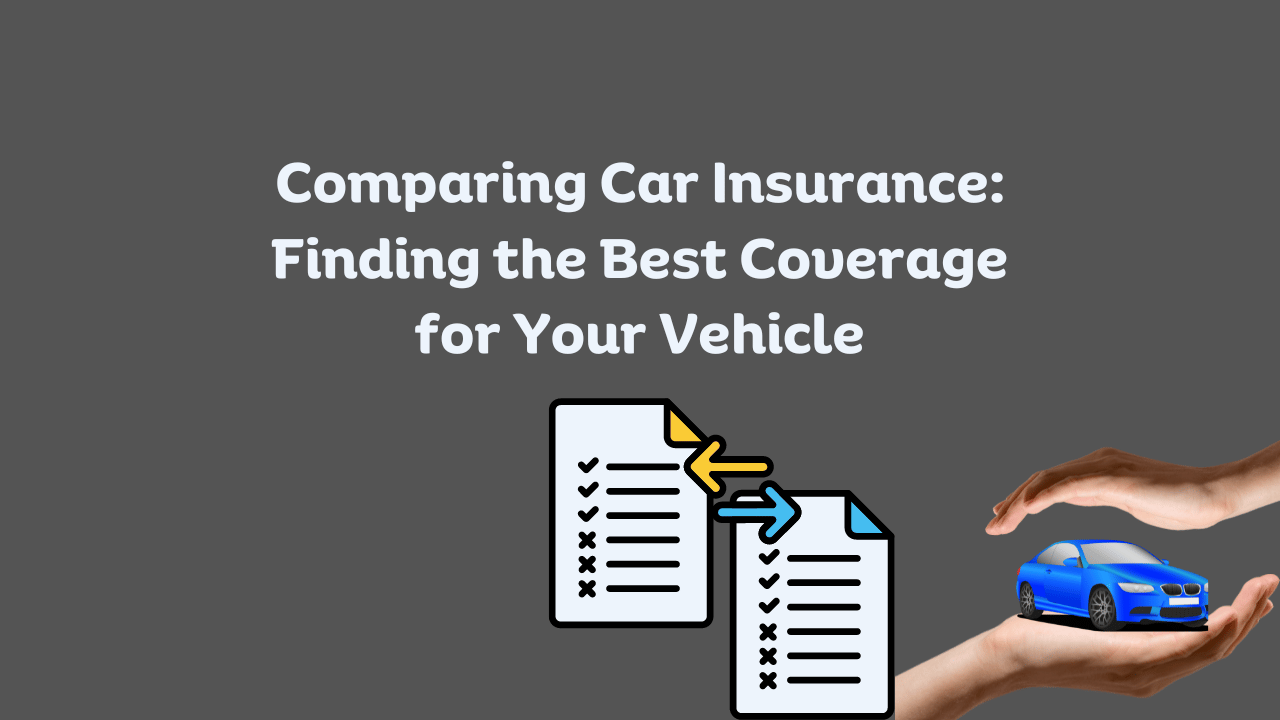Car insurance is a crucial aspect of responsible car ownership. It provides financial protection against unforeseen events and accidents. With numerous insurance providers and policy options available, comparing car insurance becomes essential to find the best coverage that suits your needs and budget. In this article, we will explore the key factors to consider when comparing car insurance and provide insights to help you make an informed decision.
1. Coverage Options:
When comparing car insurance, it’s important to evaluate the coverage options offered by different providers. Basic coverage typically includes liability coverage, which covers damages caused to others in an accident. However, “comprehensive coverage, collision coverage, personal injury protection, and uninsured/underinsured motorist coverage are additional options to consider.” Assess your specific needs and prioritize the coverage that aligns with your requirements.
2. Premium Rates:
Premium rates vary among insurance providers based on factors such as your age, driving history, vehicle model, and location. While comparing car insurance, obtain quotes from multiple providers to compare premium rates. Consider factors such as deductibles, discounts, and payment options to determine the overall affordability of the policy. Remember, the cheapest option may not always provide the best coverage, so strike a balance between cost and coverage.
3. Deductibles and Exclusions:
Deductibles refer to the sum you are responsible for paying from your own funds prior to your insurance coverage taking effect. Lower deductibles typically result in higher premium rates. It’s crucial to compare deductibles and understand the exclusions of different policies. Familiarize yourself with what is covered and what isn’t to avoid surprises in the event of a claim.
4. Customer Service and Claims Process:
The quality of customer service and the efficiency of the claims process are vital aspects to consider when comparing car insurance. Research customer reviews and ratings to gauge the reputation of the insurance provider. Look for feedback regarding the ease of filing claims, response time, and overall customer satisfaction. A reliable insurance company should provide prompt assistance and a hassle-free claims experience during challenging times.
5. Additional Benefits and Discounts:
Insurance providers often offer additional benefits and discounts that can enhance the value of your policy. These may include roadside assistance, rental car coverage, discounts for safe driving, bundling multiple policies, or having anti-theft devices installed in your vehicle. Assess these extras and discounts to determine their relevance and potential cost savings for your specific situation.
6. Financial Stability and Reputation:
Consider the financial stability and reputation of the insurance company before making your decision. Look for insurers with strong financial ratings from independent rating agencies. A financially stable company is more likely to fulfill its obligations and process claims efficiently.
Conclusion:
Comparing car insurance is crucial to finding the best coverage for your vehicle. Evaluate coverage options, premium rates, deductibles, customer service, and additional benefits when comparing policies. Prioritize your specific needs and budget to strike a balance between coverage and affordability. Remember to consider the reputation and financial stability of the insurance provider. By taking a proactive approach and considering these factors, you can make an informed decision and secure the right car insurance to protect yourself and your vehicle on the road.




